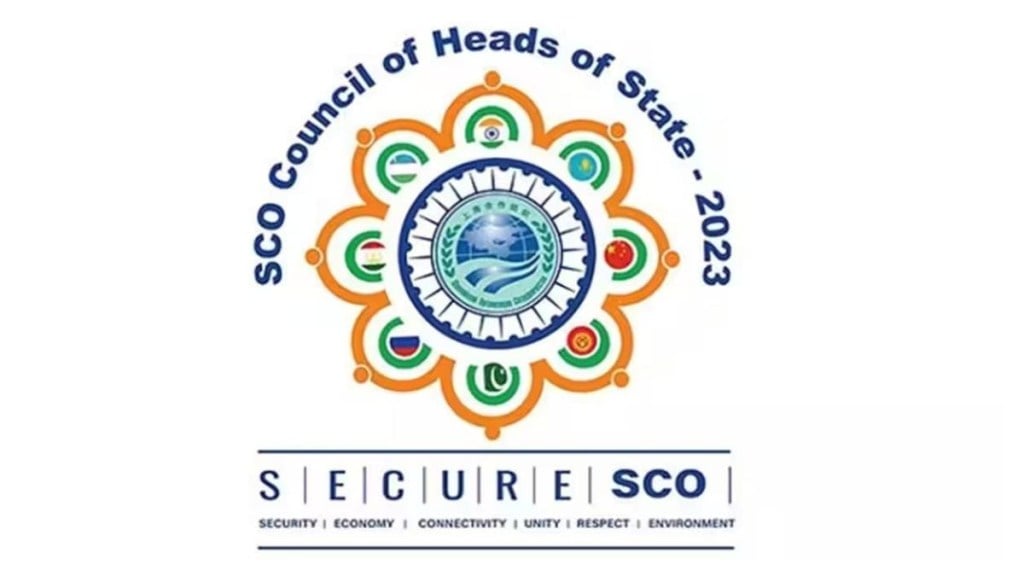The 23rd Shanghai Cooperation Organisation (SCO) Council of Heads of State (CHS) summit, scheduled for July 4, holds significant importance for both Pakistan and China, who have confirmed their virtual presence.
The summit will be chaired by Prime Minister Narendra Modi and the theme of the summit this year is “Secure” which stands for ‘Security, Economy and Trade, Connectivity, Unity, Respect for Sovereignty and Territorial Integrity, and Environment’. The summit holds immense significance for regional security, prosperity, and enhanced engagement with the region.
Participation of Key Leaders
Russian President Vladimir Putin, Chinese President Xi Jinping, among other prominent leaders, will attend the virtual summit hosted by India.
Belarus President Aleksandr Lukashenko too will attend.
Initially planned as an in-person event, the summit was shifted to a virtual format, disappointing some members who were eagerly preparing for the occasion. However, despite the format change, the SCO summit remains a crucial platform for engaging with regional partners and strengthening ties.
With an increased focus on regional security, prosperity, and engagement, Pakistan’s participation underlines its commitment to the SCO as a pivotal forum, stated an official statement of that country’s Foreign Ministry.
Regional and Global Focus
This year’s summit is expected to delve into regional and global issues, emphasizing cooperation among SCO members. Topics of discussion will include charting the future direction of cooperation, addressing issues related to the status of International North South Transit Corridor (INSTC); revival of TAPI (Turkmenistan-Afghanistan-Pakistan-India) projects; fight against narcotics; energy and food security; situation in war torn Afghanistan under Taliban 2.0; countering terrorism and more.
SCO’s Growing Significance
The SCO has emerged as one of the largest transregional international organizations, encompassing China, Russia, Kazakhstan, Kyrgyzstan, Pakistan, Tajikistan, and Uzbekistan as member states. Additionally, Iran, Belarus, and Mongolia will participate as Observer States, with Turkmenistan attending as the guest of the Chair. The SCO’s geographic scope covers 60 percent of Eurasia and represents 40 percent of the world’s population, with a combined GDP accounting for 20 percent of the global economy.
Broader Diplomatic Engagements
The SCO summit precedes the upcoming BRICS Summit in Capetown, South Africa, and the G20 Leaders Summit in Delhi, both of which India will host under its presidency. These consecutive events provide a valuable opportunity for leaders to discuss shared challenges, strengthen multilateral cooperation, and explore avenues for economic growth and development.
The 23rd SCO Council of Heads of State summit, although shifted to a virtual format, remains a crucial forum for fostering regional security, prosperity, and engagement. And it continues to strengthen its position as an influential economic and security bloc. As discussions unfold during the summit, participants will chart a future course for enhanced cooperation, further solidifying the SCO’s unique position on the global stage.
Welcoming new members
The inclusion of Iran as an official member enhances the SCO’s reach and influence, further solidifying its role as a key player in regional affairs.
While Iran will become a full member this year under India’s presidency, next year will witness Belarus attaining full membership of the grouping when it meets in Kazakhstan. Belarus will sign a pact to join the grouping however, it will officially attain full membership next year. The process to become a full member of the grouping takes almost two years.
Earlier this year at the SCO Foreign Ministers meet in Goa, MoUs were signed under which countries including Myanmar, Maldives, Kuwait and UAE were granted dialogue partners status. Soon Bahrain too will get the status of a dialogue partner.
SCO under India’s presidency
Under India’s presidency till date 134 meetings and events, and this includes 14 ministerial-level meetings have taken place.
Also, two new SCO mechanisms have been created — special working groups on traditional medicine and startups and innovation. These are India led and India created.

